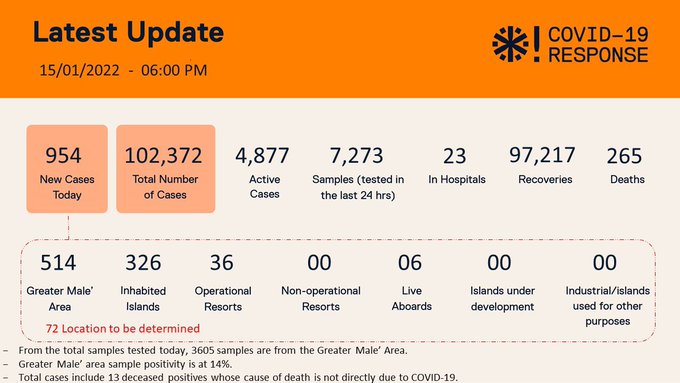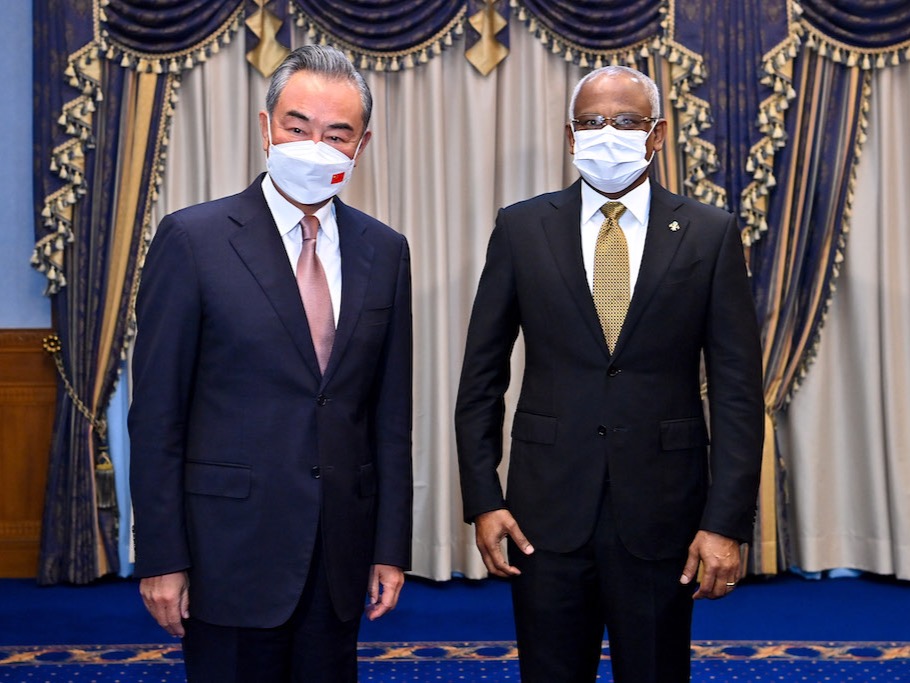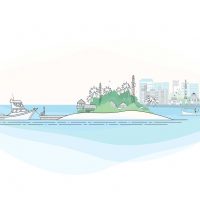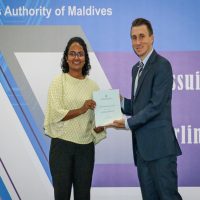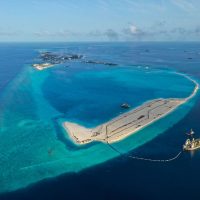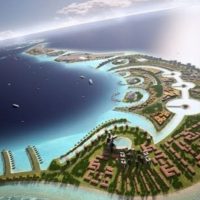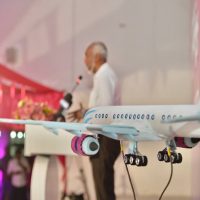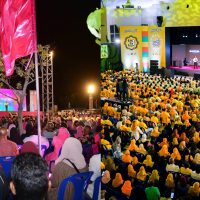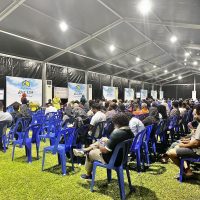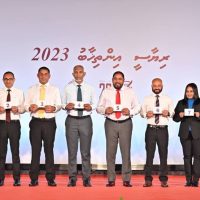1. China Grants US$63 Million And Visa-Free Entry To Maldivians
Grant aid of about US$63 million and a visa exemption deal that allows Maldivians to travel to China visa-free for 30 days were among key agreements signed during Chinese Foreign Minister Wang Yi’s official visit.
The grant aid was pledged under an economic and technical cooperation agreement “for social, livelihood, and infrastructure projects as agreed by both parties.” The mutual visa exemption agreement will take effect after pandemic restrictions are lifted. Other agreements were signed for the maintenance of the Chinese-funded Sinamalé bridge, development of a micro-grid sweater desalination plant, and a “hospital assistance and cooperation programme” between health authorities.
In the first high-level visit since the current administration took office three years ago, the Chinese foreign minister arrived on Friday to commemorate the 50th anniversary of diplomatic relations between the countries. During the two-day visit, Wang Yi led a Chinese delegation at bilateral talks and paid a courtesy call on President Ibrahim Mohamed Solih.
In his remarks at a joint press conference, Foreign Minister Abdulla Shahid said both sides agreed to “explore new avenues of cooperation and to enhance existing ones”. Shahid thanked China for the “generous assistance it had provided to the Maldives in the recent past, including the China-Maldives Friendship Bridge, the housing units in Hulhumalé, and the expansion of the Velana International Airport,” referring to the previous administration’s Chinese-funded infrastructure boom.
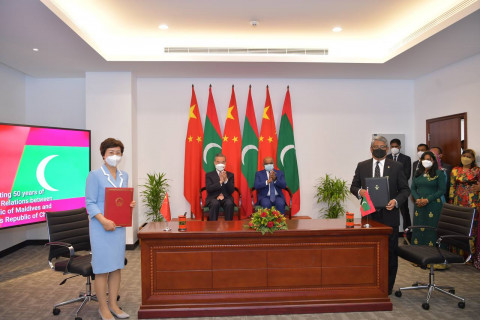
Why It Matters: Geopolitical rivals India and China have been vying for influence in the Maldives over its strategic location astride crucial sea lanes. Historically close ties with India were strained during former president Abdulla Yameen’s tenure as he forged a development partnership with China. Yameen’s successor repaired relations with the giant neighbour and secured financing for new infrastructure projects.
Foreign Minister Shahid’s visit to Beijing in September 2019 was meanwhile hailed as a restoration of political trust between the countries. But Shahid’s more conciliatory and diplomatic stance has been at odds with persistent accusations from former president Mohamed Nasheed about China dragging the Maldives into a debt trap. Nasheed, who is also the speaker of parliament and president of the ruling party, contends that projects were carried out at inflated costs and were designed to allow China to demand an ownership stake, allegations that were angrily denied by the rising superpower.
More recently, Nasheed sharply criticised China’s role at the COP26 climate summit. “If you want to be world leaders, this is an issue that you have to embrace and you have to lead. It is difficult to think how other countries now can think China is a leader,” he told Politico. But in the wake of Wang Yi’s visit, Nasheed told The Hindu that the Maldives “cannot play one country against the other” and that it was important for Malé “to be good and honest with its friend.” He added: “India is our neighbour and the first port of call in everything. I don’t think that Indian assistance in the Maldives needs to be shadowed with something else.”.
2. Project Announcement Before By-Election An ‘Abuse Of State Resources’
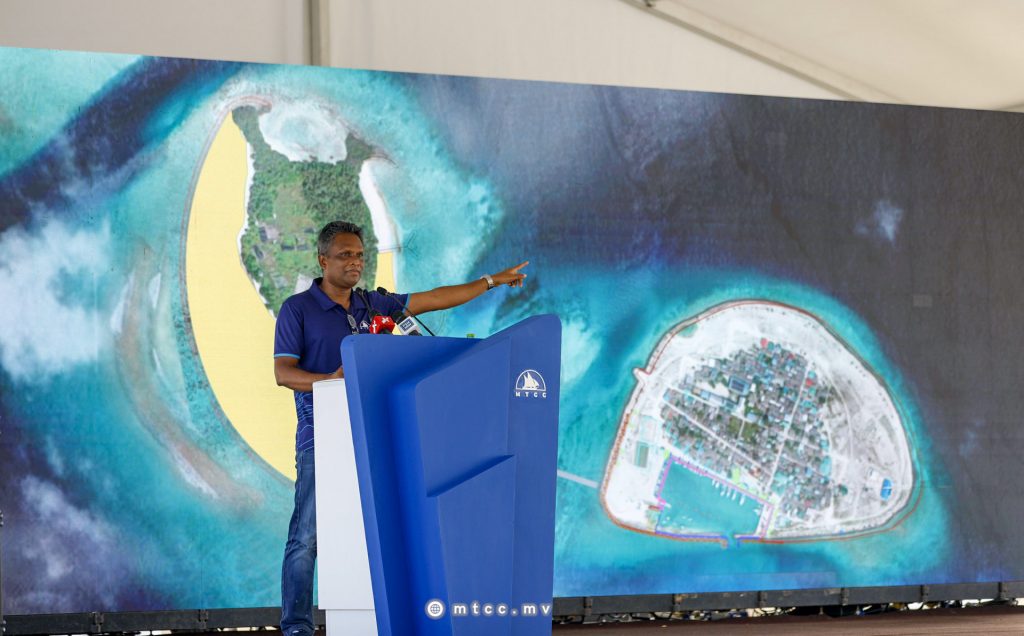
Anti-corruption NGO Transparency Maldives flagged President Ibrahim Mohamed Solih’s announcement of a project during a campaign rally as a “clear abuse of state resources” to unduly influence voters.
Campaigning for the ruling party’s candidate for Komandoo constituency’s vacant parliament seat, President Solih announced plans to connect Komandoo with an uninhabited island in the same lagoon, a pledge he made during the 2018 campaign. The land reclamation project was promptly awarded to the state-owned Maldives Transport and Contracting Company (MTCC). Projects were also hastily announced for other islands in the Shaviyani Atoll constituency. The by-election is scheduled for 5 February.
The local chapter of Transparency International noted that the Komandoo connectivity project was not approved with the 2022 budget whilst rushed public consultation and environment impact assessment would prove inadequate. But after concerns were raised at a meeting with political parties, the Elections Commission’s vice president reportedly suggested that it was not a problem to deliver manifesto pledges without budget allocations. The EC should not initiate a probe but would investigate if a formal complaint was made, he added. Transparency Maldives urged the electoral body to work “proactively” to uphold the integrity of electoral processes.
Background: “Allegations of misuse of state resources has been rife in all elections across multiple governments,” Transparency Maldives observed in 2018 pre-election assessment. “Historically, the most common complaints include the inauguration or completion of government projects in time for elections – which is often used as a campaign tool for incumbent parties – and the state’s use of its buildings, vehicles and human resources for campaign activities.”
In other developments:
- Former president Abdulla Yameen travelled to canvass support for the opposition Progressive Party of Maldives candidate, promising to build an airport for Komandoo if the party returns to power. The government is planning to sell the “bankrupted” national airline operator to an Indian company, he claimed. On Funadhoo, Yameen led a demonstration demanding the removal of Indian soldiers and repeated allegations of India rigging the 2018 presidential election. India’s growing control of internal affairs must be stopped, he warned, alleging that the Indian military was calling the shots.
- Vice President Faisal Naseem, Foreign Minister Abdulla Shahid and Defence Minister Mariya Ahmed Didi campaigned in Komandoo and other islands for the Maldivian Democratic Party candidate.
- The candidate of the newly-formed Maldives National Party led by MP Mohamed Nazim opened a campaign hall in Hulhumalé.
- A group of Kalaidhoo islanders staged a protest on Friday, demanding a launching date for a causeway project to connect the island with nearby Dhabidhoo, also a pledge made by the president during his 2018 campaign.
3. Health Authorities Under Fire Over Travel Restrictions As Omicron Wave Hits
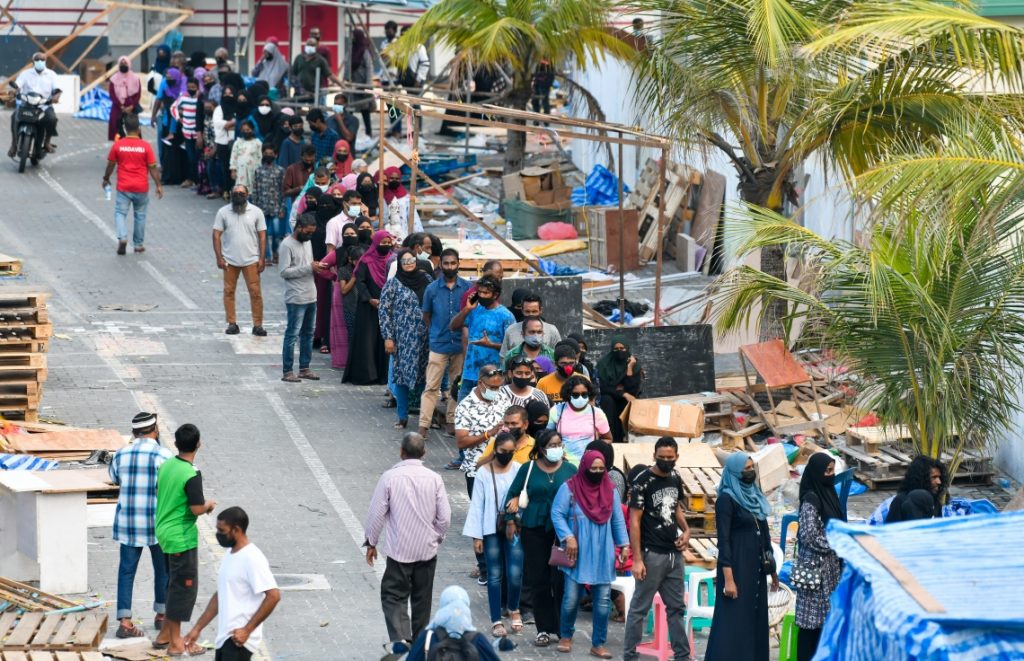
The Health Protection Agency came under fire after reimposing a requirement for PCR tests to travel between the capital and other islands, forcing thousands of people who travelled to Malé during school holidays to queue outside the few centres that offer free tests.
Photos and stories of families with young children and senior citizens waiting for hours in line were shared on social media. The main collection centre in Malé was only open for two hours at night. As complaints mounted, allegations resurfaced about senior officials with business interests in private clinics that charge nearly US$50 for a PCR test (down from over US$100 in 2020). Dr Ali Latheef, head of the Technical Advisory Group that guides the government’s Covid-19 response, is accused of making millions from the “PCR test racket.” Latheef reportedly transferred his stake in one of the largest PCR testing laboratories during the pandemic. He denies alleged ties to other private clinics.
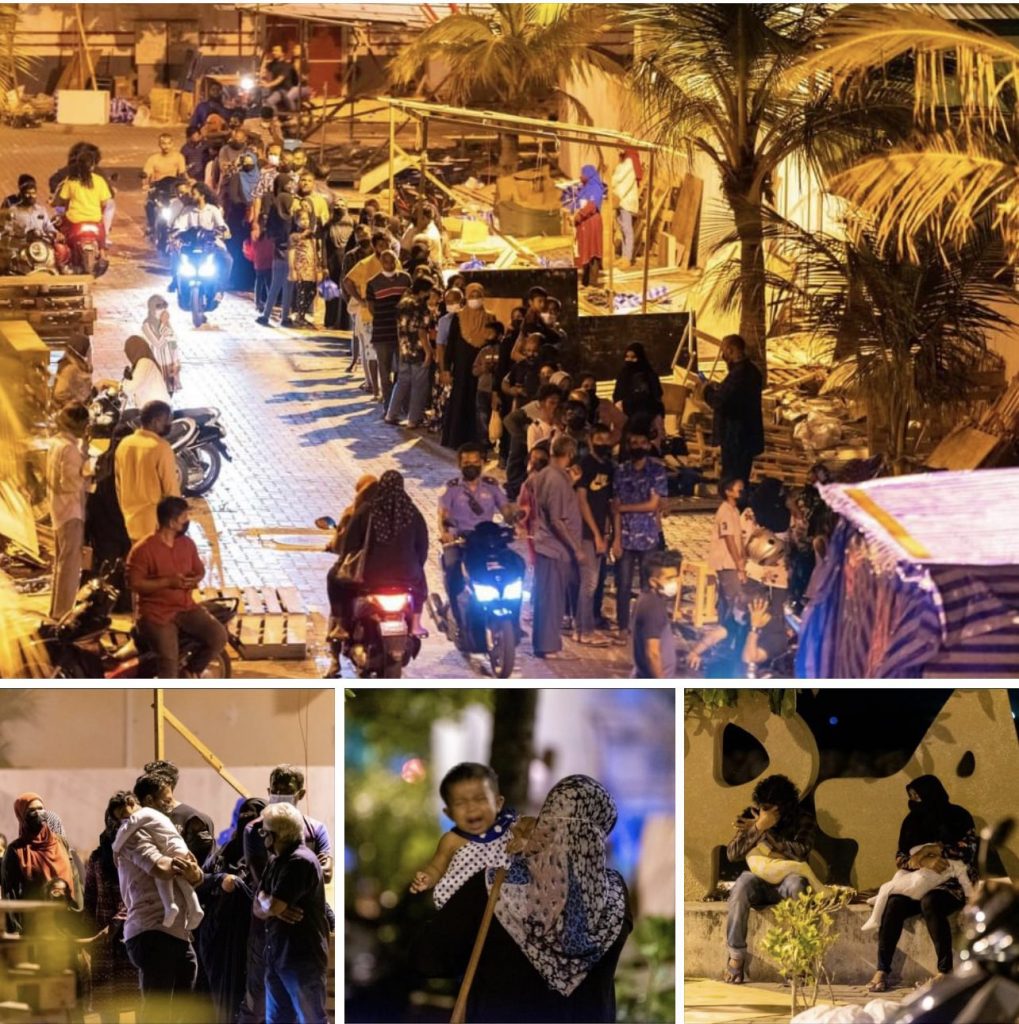
In response to public anger, the rule was relaxed to allow people to either take a test upon returning to their island or travel after providing a sample in Malé. In both cases, travellers must quarantine at home and wait for test results.
The quarantine and isolation period for infected people and direct contacts was shortened from 14 to 10 days. Fully vaccinated people who test positive can end their quarantine with a negative test on the fifth day or without a test after 10 days. Unvaccinated people would still need to quarantine for two weeks and take a PCR test.
The HPA also faced criticism for allowing New Year music shows and a night market to go ahead after the highly contagious Omicron variant was detected. But the agency denied acting arbitrarily or abruptly, explaining that restrictions were triggered by Malé’s positivity rate climbing above five percent – a threshold for containment measures.
Covid trajectory: Despite the successful rollout of a nationwide vaccination programme in February last year, the worst outbreak and highest death toll were recorded in May 2021, accounting for nearly half of all Covid-19 fatalities and prompting a partial lockdown of Malé City. Until the present Omicron wave, the situation largely remained stable after the Delta-driven record surge in May.
After hovering below five percent since August when restrictions were eased, the daily case count rose sharply in early January. Total cases crossed the 100,000 mark and the positivity rate in Malé shot up to 14 percent last week. But hospitalisations stood at 23, the same number as mid-December. Three elderly patients with Covid-19 died in January.
The HPA told the press on Tuesday that Omicron cases are expected to peak in late January or early February. Unlike the Delta wave that was largely concentrated in the capital, the new variant is spreading across the country. Genome sequencing has confirmed community spread of the Omicron variant with eight cases detected in Malé, Maafushi and Kudahuvadhoo.
Vaccination status: Covid vaccine take-up slowed to a crawl after 80 percent of the eligible population above 12 years of age were fully vaccinated by late 2021. Administration of the Pfizer booster dose to all residents over 18 started on Saturday (15 January).
